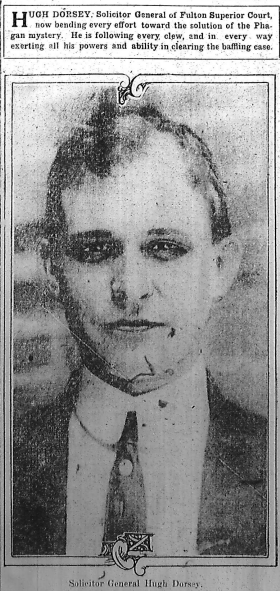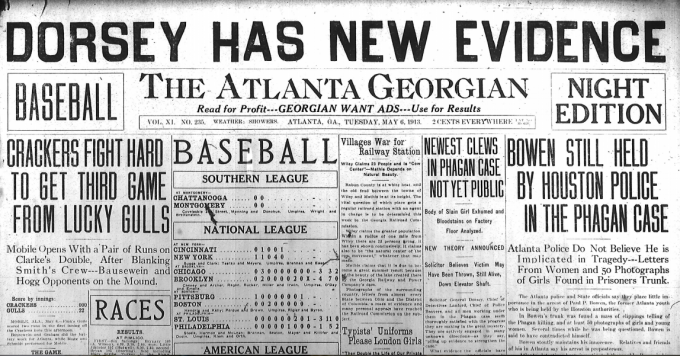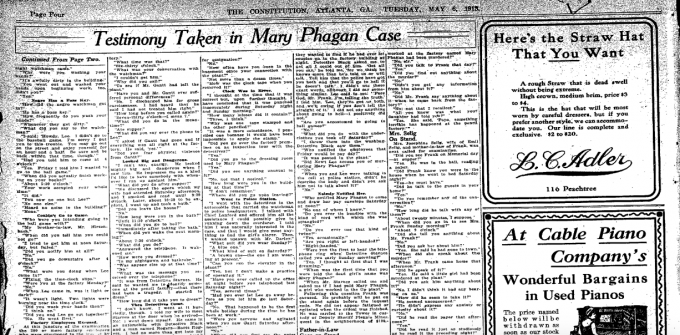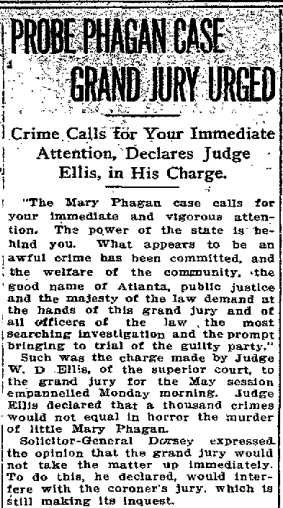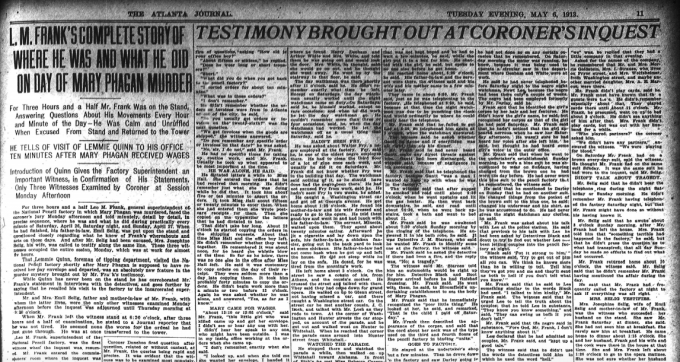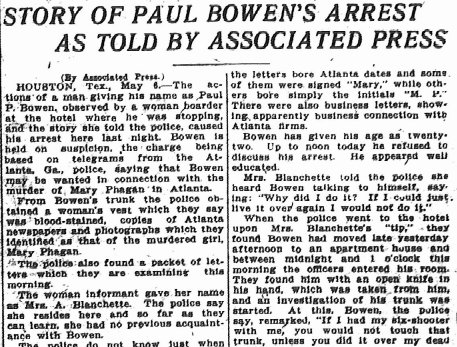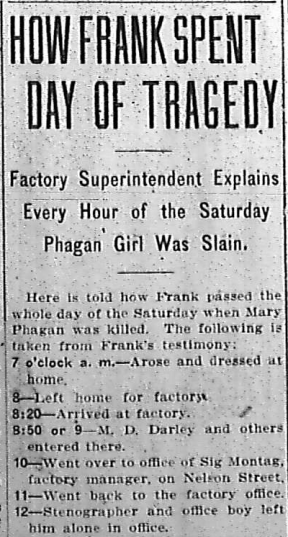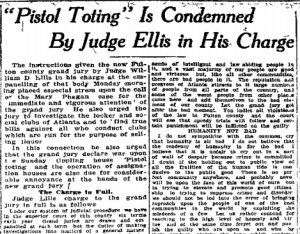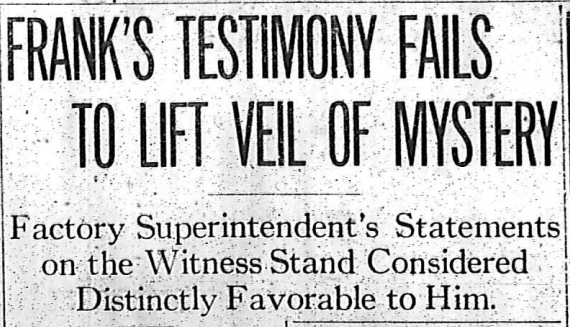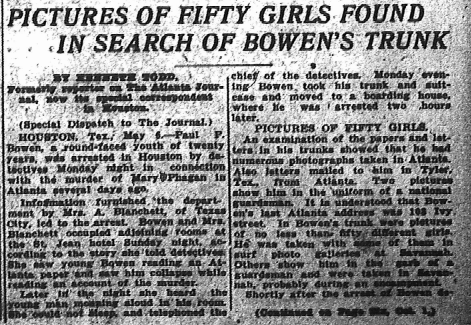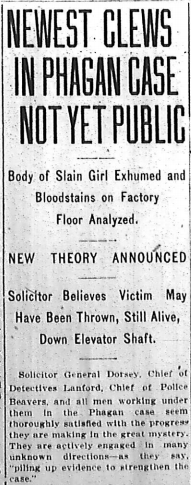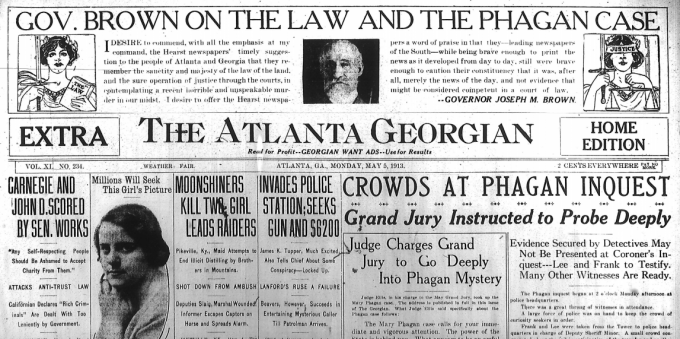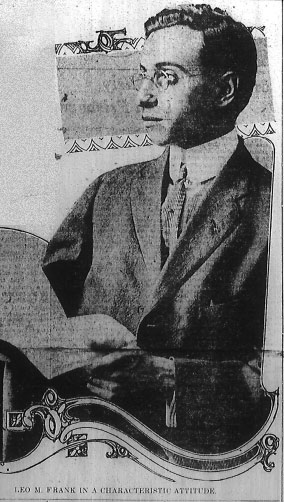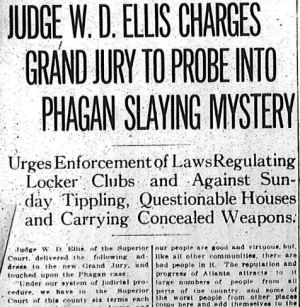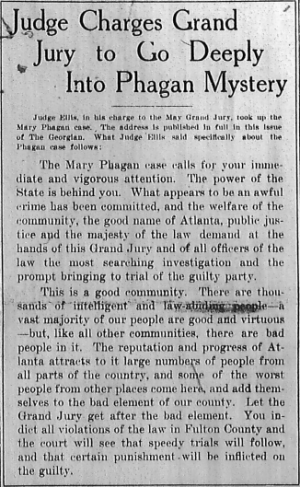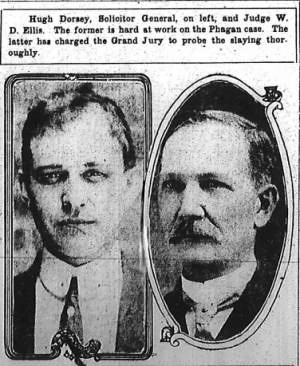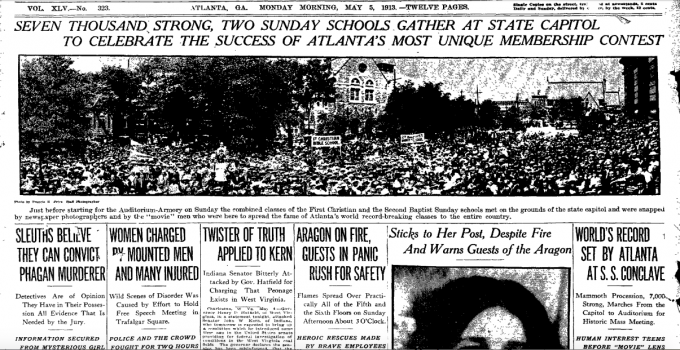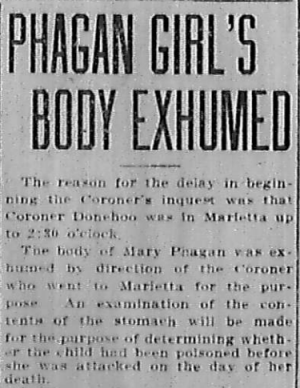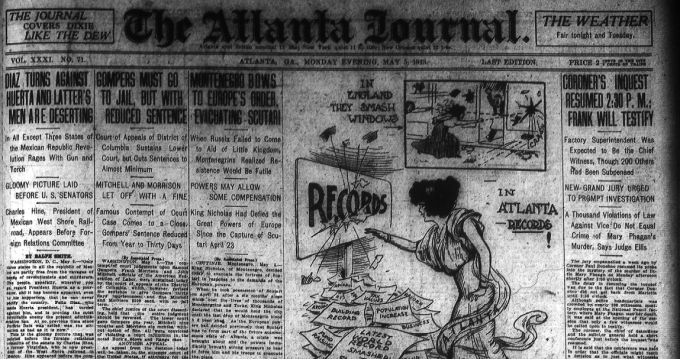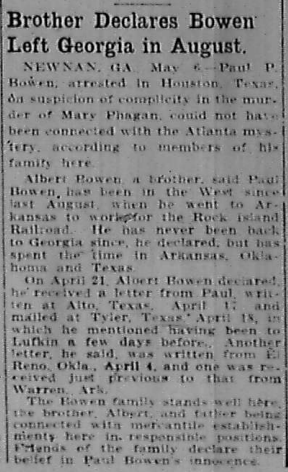 Another in our series of new transcriptions of contemporary articles on the Leo Frank case.
Another in our series of new transcriptions of contemporary articles on the Leo Frank case.
Atlanta Georgian
Tuesday, May 6th, 1913
Paul P. Bowen, arrested in Houston, Texas, on suspicion of complicity in the murder of Mary Phagan, could not have been connected with the Atlanta mystery, according to members of his family here.
Albert Bowen, a brother, said Paul Bowen has been in the West since last August, when he went to Arkansas to work for the Rock Island Railraod. He has never been back to Georgia since, he declared, but has spent the time in Arkansas, Oklahoma and Texas.
On April 21, Albert Bowen declared, he received a letter from Paul written at Alto, Texas, April 17 and mailed at Tyler, Texas, April 18, in which he mentioned having been to Lufkin a few days before. Another letter, he said, was written from El Reno, Okla., April 4, and one was received just previous to that from Warren, Ark.
The Bowen family stands well here, the brother, Albert and father being connected with mercantile establishments here in responsible positions. Friends of the family declare their belief in Paul Bowen’s innocence.
* * *
Atlanta Georgian, May 6th 1913, “Brother Declares Bowen Left Georgia in August,” Leo Frank case newspaper article series (Original PDF)

